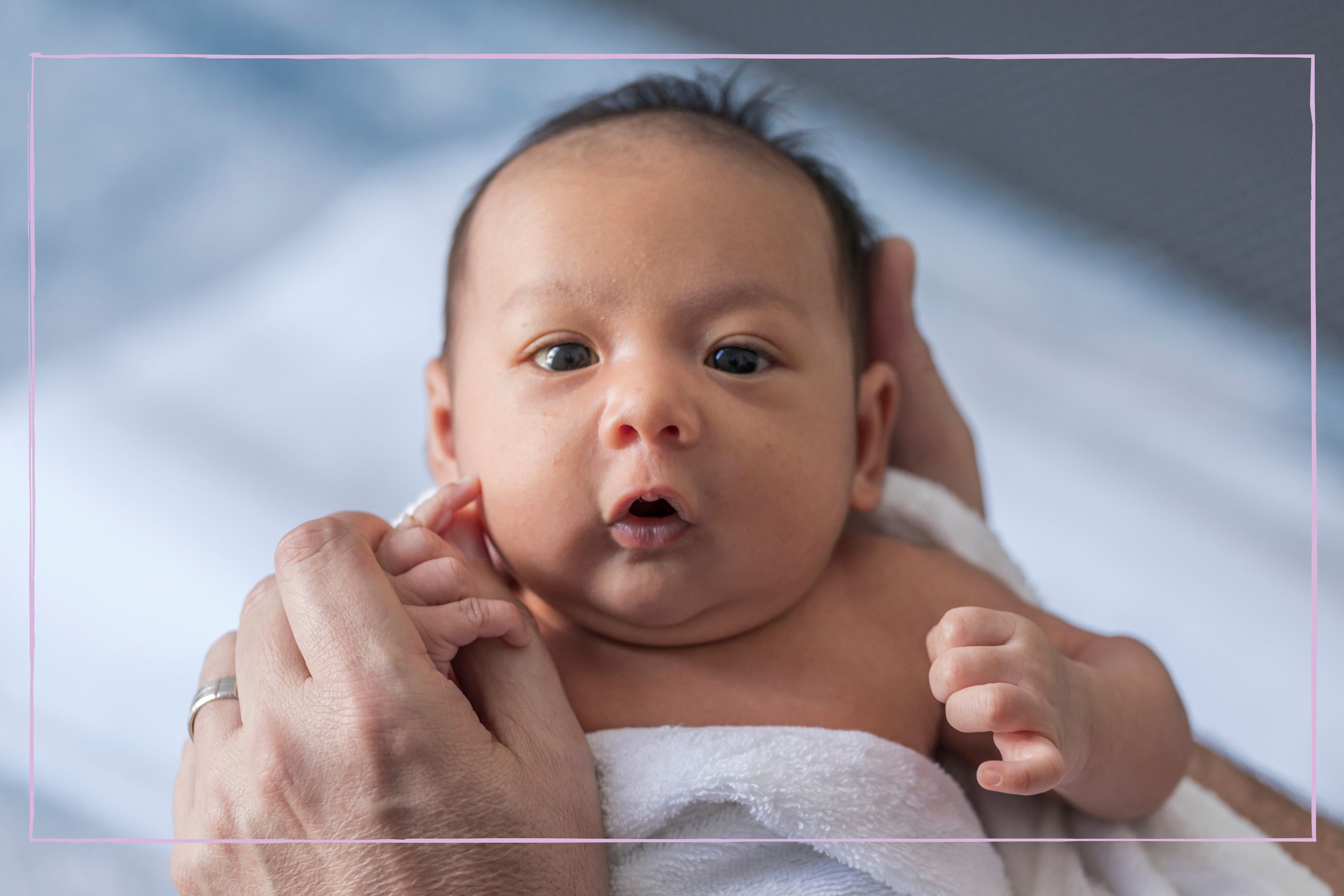Do you have an 'oops baby'? Experts explain how being unplanned shapes your child's development
"It's not how a child begins that defines their future, but rather the care and nurturing they receive along the way"

Parenting advice, hot topics, best buys and family finance tips delivered straight to your inbox.
You are now subscribed
Your newsletter sign-up was successful
Research into unplanned pregnancies is still very new, but new expert insight is quickly revealing how being an 'oops baby' can shape a child's development.
A child's early life is punctuated by a whole series of developmental milestones from learning to crawl, to walk and to talk, to joining nursery, making new friends, and beginning school. These milestones are universal experiences for many parents, but new research is showing how 'oops babies' may need a little more support to reach the same level of emotional, cognitive and social development as other planned family additions.
'Oops babies' are babies resulting from unplanned pregnancies - and they’re more common than you might think. According to research from the Guttmacher Institute, between 2015 and 2019, 47% of pregnancies in the UK were unintended. But while unintended does not always mean unloved, experts say that it is important for parents of oops babies to quickly create a strong connection with their child in early development so they don't grow up to 'feel unwanted,' with this emotion often leading to developmental problems.
Dr Patricia Britto, DEdPsy, an HCPC-registered educational psychologist, told Very Well Mind, "Children and young people who have been told that their birth status is unplanned can likely feel unwanted, which can be associated with attachment insecurity—anxiety and avoidance.
"Every child or young person 25 and under needs at least one adult who thinks they are priceless and provides unconditional love. Parents’ attentiveness to their children’s emotions is essential when fostering their emotional development and well-being.
"For example,” she continues, “Some children and young people may struggle to trust their parents and be more sensitive to rejection.”
According to the expert, it's not so much that being unplanned will affect a child’s emotional and social development but the approach a parent takes to telling the child they were a 'happy accident.'
Parenting advice, hot topics, best buys and family finance tips delivered straight to your inbox.
When it comes to telling a child they are an oops baby, Britto says, ”A nurturing approach is likely to result in a more favourable outcome than an abrupt one."
There is also the financial element of welcoming an unplanned child into a family and this can have an unintended affect on the child. Whether it's a first child or you're deciding whether or not to have a second baby, Jennie Lannette Bedsworth, MSW LCSW, a licensed clinical social worker and behavioural therapist, highlights the way the financial stress placed on parents when expecting an oops baby can affect a child's cognitive development.
She said, “Financial and emotional pressures could make it harder to provide the stable environment kids need in those early years. We also know that long-term stress isn't good for anyone's health.”
There is a simple way to make sure oops babies feel supported and subsequently hit all the right developmental milestones when their planned peers do, the experts say. And that is by establishing strong family ties and good support systems for them.
Bedsworth explains, “With a solid network behind them, families dealing with an unplanned pregnancy can absolutely emerge happy and healthy. It's not how a child begins that defines their future, but rather the care and nurturing they receive along the way. Countless children from unplanned pregnancies thrive with loving, committed parents.”
Dr Britto adds that emotional regulation is especially important for oops babies and she urges parents to teach their kids 'co-regulation.' She explains, “Co-regulation is a strategy to help children learn how to return to a calm state when triggered by stressors such as sensory inputs and stressful events with support and direction from an adult.
"For example, parents may sit with their children in moments of distress and wait until they are calm before they solve problems. They also offer tips such as taking deep breaths, drinking a sip of water, moving to another scenery, and engaging in mindfulness.”
In other family news, giving teens ‘space and opportunity’ to be independent helps them thrive according to an educator - here’s 3 top tips to get started. Plus, do you get your kids’ names mixed up? Psychologist reveals why your brain makes this ‘common glitch’ and it’s not the reason you think. And a parenting expert shares the one ‘emotional habit’ that can affect kids’ ‘security’ and ‘trust in themselves’ and what parents can say and do instead to break the cycle.
Charlie Elizabeth Culverhouse is a news writer for Goodtoknow, specialising in family content. She began her freelance journalism career after graduating from Nottingham Trent University with an MA in Magazine Journalism, receiving an NCTJ diploma, and earning a First Class BA (Hons) in Journalism at the British and Irish Modern Music Institute. She has also worked with BBC Good Food and The Independent.